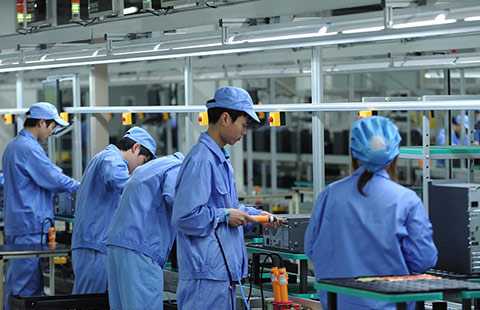China's reforms 'suitable' to spur economic growth: Argentine economist
(Xinhua) Updated: 2015-09-21 14:21BUENOS AIRES - China, at a time when the world economy remains in a precarious state, has implemented "suitable" reforms to spur economic growth, according to Argentine economist and consultant Gustavo Girado.
"I understand the measures adopted to stimulate the service sector and increase domestic consumption are suitable to replace the dynamism its foreign trade and investment had before," Girado, who heads the consulting firm Asia and Argentina, told Xinhua in a recent interview.
"I am moderately optimistic about China's economy, as it continues to operate within the parameters pre-established by government policy with the natural drawbacks of trade partners with troubled economies," said Girado.
"If China's foreign trade shrinks, it seems logical given the lower level of activity of its main trade partners," said Girado, referring to the crisis-hit economies of the European Union.
Girado said he agreed with Chinese President Xi Jinping's recent assertion that the economy must open more to the outside world in order to spur growth.
"China must make an effort to attract foreign investment and experience, and to improve the country's policies of opening up," he said.
At the same time, Girado noted, it must take into account the precarious state of the world economy.
"China's economy is going through a very particular moment, as the Chinese government has decided to make important changes at a time when global economic activity is much less dynamic," he said.
"China had proposed a significant number of economic reforms that would have had a very positive outcome in a dynamic world, not the one we have at the moment," he said.
However, Girado note that "China has many tools to spur its level of activity."
According to Girado, the interest rate above 4 percent in China offers it room for maneuver as compared with its European partners.
"China can cut the rate to stimulate the level of activity, while its partners can't," said Girado, who believed the restructuring in the Chinese economy will result in a better growth for the country.
Talking about the economic crisis the Europe is currently going through, Girado said the root of the problems "is located across the Atlantic."
The US intention to hike the interest rate caused investors to withdraw from markets seen as risky, and redirected capital towards "the world's largest capitalist economy," Girado explained.
The so-called "flight to quality" has decreased financing possibilities for emerging economies, which until now have been the engines of the world economy," said Girado.
- AIIB vows to engage private sector across world in Asia's infrastructure investment
- Local firm seeks foreign clients at China-ASEAN Expo
- China crucial for Chilean mining sector: Chilean minister
- Haier spearheads new model of innovation
- Leap in Chinese tourists drives record New Zealand visitor numbers
- Railway to connect China, Thailand
- Warner Bros, CMC in joint venture to launch China movies
- China calls for better management of small hydropower stations
















